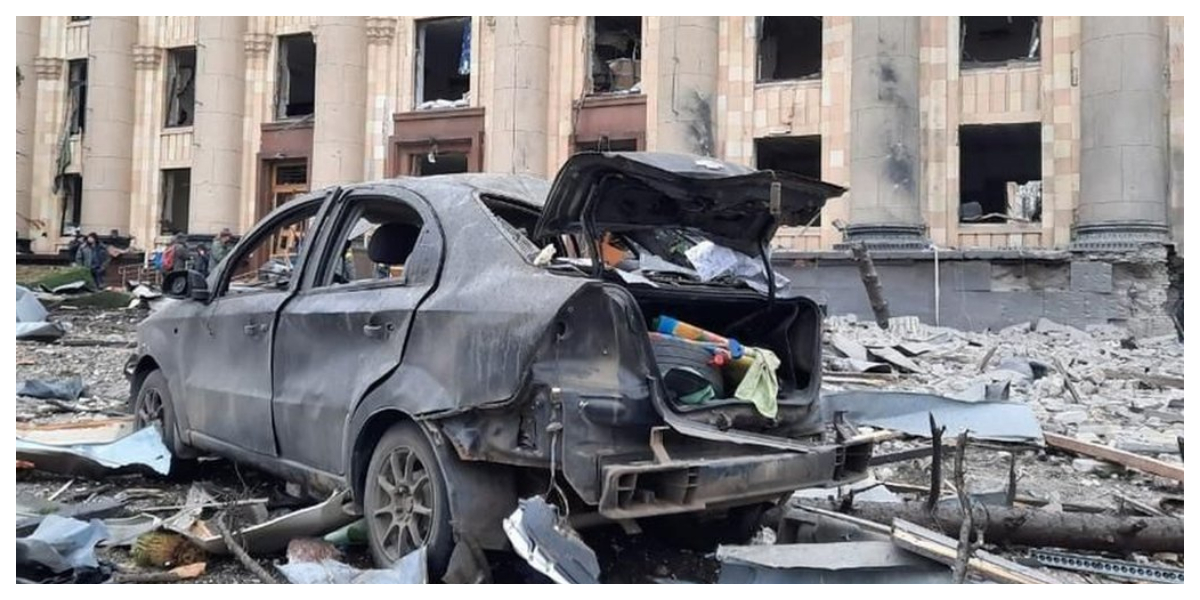Ukrainian prosecutor Roman Petrenko examines the debris of Russian rockets that hit the famed Gorky Park in Kharkiv, Ukraine’s second-largest city.
Petrenko, a prosecutor from Kharkiv’s Shevchenkivsky district, is dressed in a gilet bearing the words “War Crimes. Kharkiv” in bold white letters.
Gorky Park in Kharkiv is a tranquil park with meandering pathways and a modest amusement park with pavilions and a Ferris wheel. It is regarded as one of Ukraine’s best parks.
Gorky Park was hit by around 50 shells in three months of war.
Prosecutors took up the case to ensure that the park could be open without the public being at risk and, above all, to determine whether the attacks constitute a war crime.
Even if there were no victims, “hitting civilian targets, civilian infrastructure, trying to kill civilians and destroy cultural heritage, are considered war crimes”, Petrenko said.
“An error can happen once or twice, but there are 56 hits recorded,” he said.
“It’s not an accident. They were targeting the park.”
With a team of deminers, assistants, ushers and workers, the prosecutor notes down each crater.
He has the ammunition dug up after an inspection by deminers, then photographs it, writes it down and determines the angle of fire and the origin of the weapon.
The shells also hit a small theatre and a closed restaurant in the park.
The shrapnel even reached and damaged bronze sculptures of children scattered around the park.
A duo of American deminers from the Bombs Tech Without Borders advise their Ukrainian counterparts at the scene.
For John Culp, a retired US soldier, there was no doubt the Russians were targeting the park deliberately:
“We are in Gorky Park.. With its paths, its stages etc.. We are investigating the fact that many rockets and shells were fired in and near the park.”
“There is no military target here. It was done knowingly to cause terror and fear among the civilian population,” he charged.

















